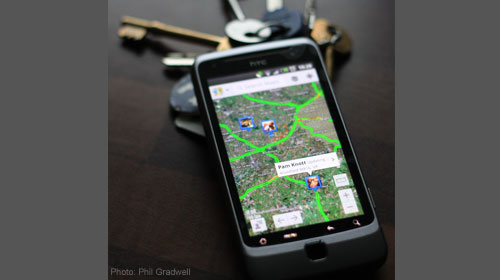If the Government Is Tracking Your Location or Reading Your Email, Would You Ever Know?


Court rulings unsealed last week in Washington show for the first time a behind-the-scenes legal battle over when the government should have to tell you that it's tracking your location and reading your email. These documents—which came to light only as the public learned more about the government's controversial of Fox News journalist James Rosen—reveal significant new details about the government's obligation to provide notice, after the fact, when it obtains geolocation data or obtains stored email messages. Indeed, the court orders bring to light a striking contrast: federal prosecutors in Washington routinely provide notice to individuals they track using cell-phone geolocation data, even if that notice is delayed, yet the government strenuously resists giving any notice to individuals when searching and reading their emails.
The government is required to tell you when it listens in on your phone calls or searches your home. Now, it appears that at least some prosecutors provide delayed notice when they use cell-phone data to track your location in real-time. If prosecutors in Washington can provide such notice, then prosecutors elsewhere should be doing it too. Last year, the public learned that the phone companies receive a surveillance requests per year, many of which are likely for geolocation data. Although notification is apparently the norm in Washington we're not aware of similar practices anywhere else in the country.
As for government searches of your personal email account, you will likely never know—unless you are ultimately charged with a crime or your email service provider voluntarily tells you about the search (something few do, often because the government obtains a gag order). The lack of notice for email searches appears to be a central question in court documents unsealed last week, which show the government trying to convince at least three judges that it has no duty to provide notice to email subscribers.
The new details emerged in a series of court opinions debating whether the government was ever required to tell Rosen that it had obtained a warrant to search his Gmail account. Relying on the convoluted and outdated federal statute governing email searches—the Electronic Communications Privacy Act (ECPA)—the government argued that it was excused from providing notice. U.S. Magistrate Judge John Facciola of the D.C. District Court rejected the government's argument and highlighted the perverse consequences of its position. Pointing out that federal prosecutors in Washington typically provide notice when tracking a person's movements using cell-phone data, Judge Facciola :
[T]he user of a cell phone whose telecommunications data has been intercepted and captured pursuant to a warrant would ultimately learn that the government has been surveilling her, even though a portion of that surveillance may have occurred when she was in a public place. The e-mail account holder, on the other hand, would never learn of the search of the entire contents of her email account. Thus, as the government would have it, while it would have to tell a person that it followed his movements one day as he walked from K Street to Connecticut Avenue, it would never have to tell him that it has read and copied the entire contents of the e-mail account that he opened when he arrived at his office on K Street.
While the government was unable to convince Magistrate Judge Facciola, it appealed and ultimately persuaded Chief Judge Royce Lamberth that it had no obligation to notify Rosen of the email search. In particular, Chief Judge Lamberth held that the government's duty to provide notice was satisfied when investigators presented the warrant to the email service provider—in this case, Google. Magistrate Judge Facciola had previously rejected the government's interpretation of the notification statute, describing it as a "meaningless act of telling the ISP what it already knows." Facciola also observed that "[i]t is irrational to think that Congress would . . . grant the government a perpetual dispensation from ever notifying a person of the remarkable intrusion that a search of his email account creates."
These court opinions and filings tell us a great deal about how the government interprets its authority to obtain highly personal information, and the extent to which it interprets the law to avoid informing individuals when they have been spied upon. The documents also prompt further questions and significant concerns. For instance, we learned for the first time that federal prosecutors in Washington generally give delayed notice to the targets of cell-phone geolocation tracking—but what about prosecutors in other parts of the country, at the federal, state, and local level? Is this practice the result of a specific court ruling confined to our nation's capital, or does it reflect a national policy adopted nation-wide by the Department of Justice?
Even more, the documents show that the government seeks to access ever-greater quantities of our personal information with even less protection for individuals. Our email accounts contain vast amounts of private information, including personal communications, financial records, and other sensitive material. Yet courts do not even mandate the kind of notice that would be required if the government wanted to rifle through the letters we keep at home. Our laws have not caught up to the reality of today's electronic communications. The government should be required to notify individuals it targets for searches, whether electronic or physical, even if that notice is delayed for a time. Currently, individuals will only learn of these electronic searches if and when they are charged with a crime. The strange result of this policy: innocent people who are never charged will never learn that they were the subject of government surveillance and this type of intrusive search.
The Department of Justice has long kept the public in the dark about the scale of its surveillance activities. Such secrecy over surveillance powers is simply not appropriate in a democracy.


